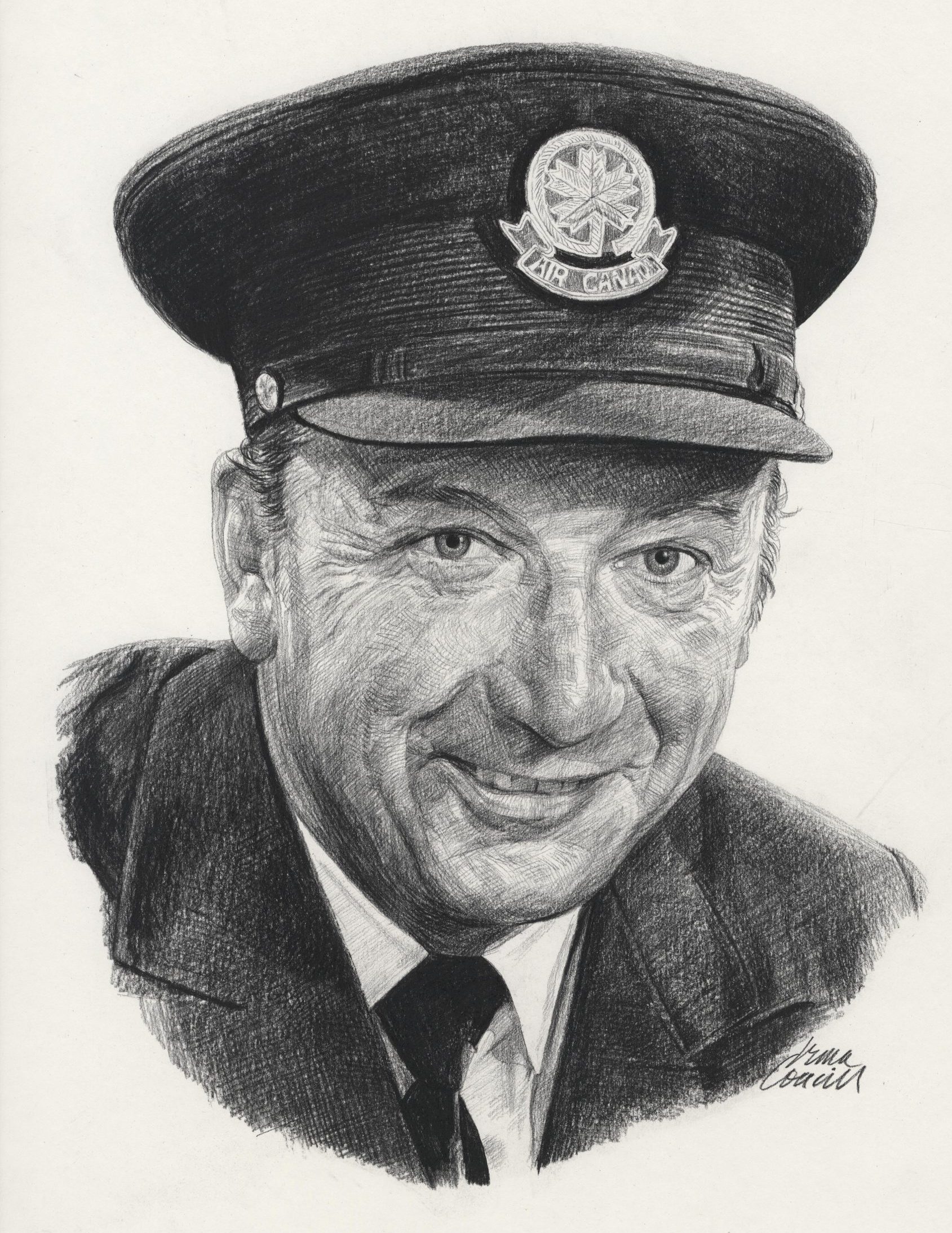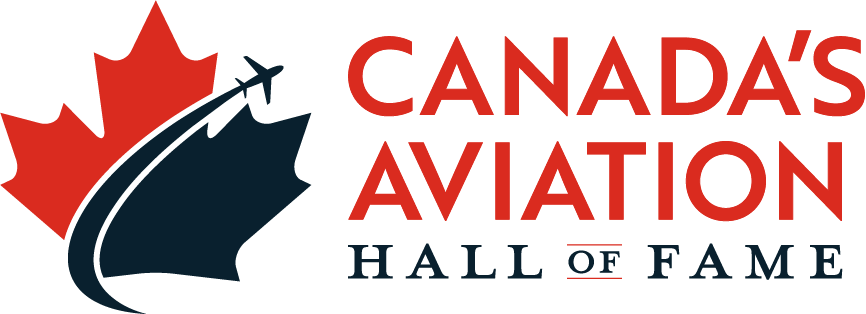James Henry Foy

Birth Date: August 8, 1922
Birthplace: Brantford, Ontario
Death Date: April 28, 1974
Year Inducted: 1980
Awards: DFC; The Clarence N. Sayen Award (IFALPA); The Ken Wright Memorial Trophy (CALPA)
His exceptional abilities as an aviator in both war and peace, coupled with his exemplary qualities of leadership and dedication to purpose, brought credit to his chosen profession and to the organizations for which he laboured, resulting in the advancement of aviation in Canada
The Second World War
James Henry Foy, D.F.C., was born in Brantford, Ontario, on August 8, 1922. With Robert Fowler, he attended Vaughan Road Collegiate in Toronto, Ontario, where he planned to enter university to study international law. On October 24, 1940, he enlisted in the Royal Canadian Air Force (RCAF), trained as a pilot and was posted to England in June of 1941, where he served with Bomber Command of the Royal Air Force (RAF).
Following operational training, Foy flew with 405 and 419 Squadrons, RCAF. He was promoted to commissioned rank in 1942, and within a few months, had completed 31 operational flights on Vickers Wellington bombers. He was awarded the Distinguished Flying Cross (D.F.C.) with the following citation:
"Flying Officer Foy now on his second tour of operational duties has participated in a large number of operational sorties including the 1,000-bomber raids on Cologne, the Ruhr and Bremen. On two occasions he successfully flew his aircraft home on one engine. On completion of his first operational tour, this officer served for some time as a pilot instructor. His operational record as a deputy flight commander has been of the highest order."
Halifax Bombers
Foy was seconded from operations and trained as an instructor. He later returned to 405 Squadron which had, in his absence, become a unit of 8 Pathfinder Group, and completed another 15 missions on Halifax bombers.
His Halifax bomber was shot down on July 16, 1943, on his 47th operational sortie while engaged as a 'target lighter'. He and his crew parachuted into German-occupied France, where he spent eight months working with the French underground resistance movement. They convoyed other downed allied air crew members to safety from Paris across the Pyrenees Mountains and Spain, to Gibraltar. He used the same route to make his own escape. On his return to England in April 1944, he was promoted to Flight Lieutenant and was Mentioned in Despatches on two occasions. His work with the French precluded his return to operational flying and he was released from service.
New Opportunities
Foy was hired by Trans-Canada Airlines (TCA) in August of 1944 as a co-pilot. Two years later he was promoted to Captain. During a 30-year career with TCA and Air Canada, Foy flew all of the fleet's aircraft, from the Lockheed 14 to his final assignment on the DC-8, on all domestic and overseas routes. His total pilot-in-command time exceeded 21,000 hours.
Foy's flying abilities were coupled with numerous contributions to the development of aviation in Canada through organizational work. He served with distinction on a number of committees of the Canadian Air Line Pilot Association (CALPA). He was elected President of that organization in 1957, an office he held for five years. He then accepted the position and responsibilities of Deputy-President of the International Federation of Airline Pilots Association (IFALPA) from 1962 to 1964. He was appointed President and served an additional three years. He became the only Canadian elected to head this group which represented the pilot associations of 65 countries. He took on a number of challenges while serving with CALPA and IFALPA, including work on training standards, medical problems, and remuneration standards. For his contributions to IFALPA he was awarded the Clarence N. Sayen Award in 1969, to recognize outstanding contributions within the Federation.
One of Foy's most memorable flights was in 1973 when he was in command of the Royal Flight from London, England, to Toronto, carrying Her Majesty, Queen Elizabeth II and Prince Philip for a 10-day royal tour. He and his crew were responsible for providing a safe, seven and three-quarter hour flight in a specially styled DC-8 chartered by the Canadian government.
Foy died in Toronto, Ontario on April 28, 1974. Two years later he was posthumously awarded CALPA's Ken Wright Memorial Trophy for "outstanding airmanship and professional performance, contributing to the enhancement and image of airline pilots."
James Henry Foy was inducted as a Member of Canada's Aviation Hall of Fame in 1980 at a ceremony held in Edmonton, Alberta.
To return to the Inductee Page, please click here.
